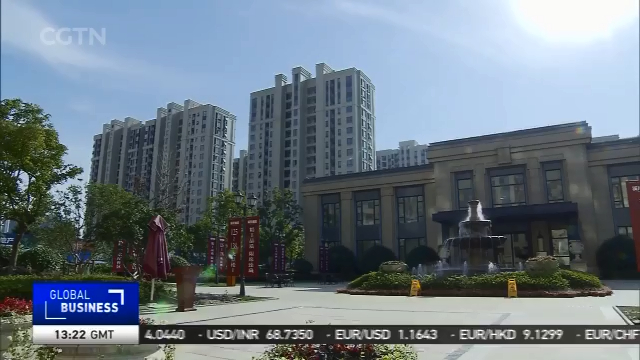
21:50, 04-Jul-2018
Shanghai Property Curbs: Ban on companies buying apartments
Updated
21:28, 07-Jul-2018
03:00

Shanghai has taken a step further against housing speculation by adding purchasing restrictions on company purchases of new residential units. The new move followed similar restrictions launched by other cities including Xi'an, Changsha and Hangzhou. Experts expect more to come in the following months. Chen Tong takes a closer look.
From now on a company wanting to purchase apartments in Shanghai will have to have been set up for at least five years, and have paid taxes totaling at least 1 million yuan. They will have to employ at least ten staff who have fully paid their social insurance fees while having been employed at the company for at least five years. In addition, the company will be banned from selling the apartments for five years after the purchase -- the previous lockup period was only three years. The extent of the new policies most likely stems from the recent phenomenon of companies rushing to buy apartments in Shanghai. In April, one famous high-end housing unit in downtown Shanghai revealed its buyer list -- over half of them were companies. While the possibility of companies purchasing for speculation may seem comparatively low, experts suggest additional motives may be in play.
STEPHENIE ZHOU, HEAD OF PROJECT JLL CHINA "Most apartments companies buy are luxury apartments. Companies have to make full payment for the apartments. So the financial risk is not very high. But some people may use the company name to buy apartments in order to avoid personal purchasing restrictions."
Shanghai is not the only city that has noticed the problem. At the end of June, three other cities -- Changsha, Xi'an and Hangzhou -- launched even tougher restrictions -- companies there are not allowed to buy any apartments in some areas. In recent years, Chinese cities have issued a variety of policies to cool down the real estate market, but most of them targeted individual buyers, creating the temptation for buyers to use company names to purchase apartments. Experts expect more policies to come in the second half of the year.
LU WENXI, SENIOR ANALYST CENTALINE PROPERTY "There are still some leaks in the current restrictions, so the key tone of this year's policy is to plug the leaks. I think some third and fourth tier cities that have hot property markets will continue to add new provisions to their current restrictions. More cities will be restricting company purchases of apartments to ease the property market."
In the first half of the year, cities nationwide have launched some 190 new policies relating to their property markets. Data from the National Bureau of Statistics show that residential property prices in first-tier cities fell in May compared with the same period last year. Price increase in second and third tier cities slowed during the same period.

SITEMAP
Copyright © 2018 CGTN. Beijing ICP prepared NO.16065310-3
Copyright © 2018 CGTN. Beijing ICP prepared NO.16065310-3